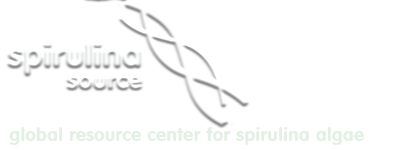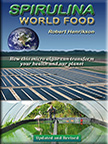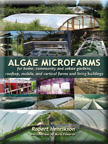REFERENCES AND ABSTRACTS BY HEALTH CATEGORY
Spirulina scientific reference library. Over 100 references covering 45 years of international research.
Bioavailability of spirulina carotenes in preschool children.
by V. Annapurna, et al. 1991. National Institute of Nutrition, Hyderabad, India. J. Clin. Biochem Nutrition. 10 145-151. India.
The bioavailability of total carotenes and beta carotene from spirulina was examined in apparently healthy preschool children and found to be comparable to those values reported for other plant sources like leafy vegetables and carrots. The study also showed spirulina is a good source of Vitamin A, as there was a significant increase in serum retinol levels. Researchers concluded spirulina can be used as a source of Vitamin A in the diet, is relatively inexpensive, has higher beta carotene than any other plant source and can be cultivated throughout the year.
Large scale nutritional supplementation with spirulina alga.
by C.V. Seshadri. 1993. All India Coordinated Project on Spirulina. Shri Amm Murugappa Chettiar Research Center (MCRC) Madras, India.
A one year feeding program with 5,000 pre-school children showed a symptom of Vitamin A deficiency, “Bitot’s spot”, decreased from 80% to 10%. These rural children near Madras consumed 1 gram of spirulina a day for at least 150 days. This small amount provided the daily requirement of beta carotene (Vitamin A) which can help prevent blindness and eye diseases. In another study with 400 school children, a daily dose of beta carotene from spirulina increased their Vitamin A status to the same level as those administered pure Vitamin A. Spirulina was given to children in a unique way: extruded noodles, sweetened with sugar to preserve the beta carotene. Called “Spiru-Om”, it was well accepted by the children. This project was sponsored by the Indian Government.
Inhibition of experimental oral carcinogenesis by topical beta carotene.
by Schwartz, et al. 1986. Harvard School of Dental Medicine. Pub. in Carcinogenesis, May 1986 7(5) 711-715. USA.
Beta carotene was found to significantly inhibit the formation of squamous cell carcinoma of hamster buccal pouch when a solution was applied topically three times weekly for 22 weeks in an experiment with 40 hamsters. In a second experiment with 80 hamsters, beta carotene was found to inhibit oral carcinogenesis in an initiation-promotion hamster buccal pouch system. Beta carotene in hibited both initation and promotion.
Prevention of experimental oral cancer by extracts of spirulina- dunaliella algae.
by J. Schwartz, G. Shklar, et al. 1988. Harvard School of Dental Medicine. Pub. in Nutrition and Cancer 11, 127-134. 1988. USA.
An extract of Spirulina-Dunaliella algae was shown to prevent tumor development in hamster buccal pouch when a solution was applied topically three times weekly for 28 weeks. Untreated control animals all presented gross tumours of the right buccal pouch. Animals fed canthaxanthin presented a notably and statistically significant reduction in tumour number and size compared with controls. Animals fed beta carotene demonstrated a smaller but statistically significant reduction in tumor number and size. The algae animals presented a complete absence of gross tumors. However, microscopic sections of the buccal pouch in the algae group showed localized areas of dysplasia and early carcinoma-in-situ undergoing destruction.




